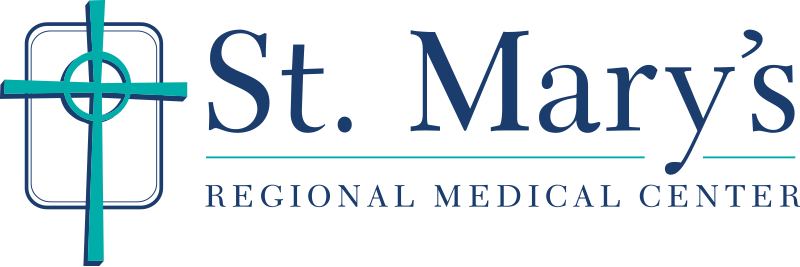Emergency Care in Enid
If you’re having a medical emergency, call 9-1-1 or go to the nearest emergency room.
St. Mary's Regional Medical Center
305 South 5th Street
Enid, OK 73701
Phone: 580-233-6100
Staff at the St. Mary's Regional Medical Center Emergency Department (ED) treat a number of complex problems, unpredictable injuries and sudden illnesses. We care for patients of all ages — infants, adolescents, adults and geriatric patients. All doctors and nurses are certified in advanced cardiac life support and pediatric advanced life support, and all our nurses are trauma certified. St. Mary's is a Level III Trauma Center and a Level II Stroke Center.
Watch this video to learn more about our management team and the services we offer.
What to Expect When You Arrive at the ER
Sudden illness or injury can occur without warning, and while no one typically plans a trip to the ER, everyone should know what to expect after they arrive.
Heart Attack Care
St. Mary’s uses systems that enable Emergency Medical Personnel to transmit EKGs to staff in the ED so they can quickly diagnose a heart attack and be ready to treat you as soon as you arrive at the hospital.
Learn more about heart attack care →
Stroke Care
St. Mary’s Regional Medical Center is a Level II Stroke Center, as designated by the Oklahoma State Health Department. This means it has been recognized for meeting standards that foster better outcomes for stroke care. St. Mary's has also earned The Joint Commission's Gold Seal of Approval® and the American Heart Association®/American Stroke Association’s® Get With The Guidelines®-Stroke GOLD PLUS with Honor Roll Elite Quality Achievement Award.
Learn more about stroke care →
Level III Trauma Center
St. Mary's Regional Medical Center is a Level III Trauma Center, which means we have the capability to provide prompt assessment, resuscitation, surgery, intensive care and stabilization of injured patients. Level III Centers have transfer agreements with Level I or Level II Trauma Centers, which may be large teaching hospitals with additional capabilities and services. Level III Centers provide back-up care for rural and community hospitals, as well as the region in which they are located.
The ED at St. Mary's receives Priority 1 and Priority 2 trauma patients for life-threatening or potentially life-threatening conditions. The hospital has 24-hour coverage by emergency physicians with prompt access to general surgeons and anesthesiologists. In addition to providing back-up care for smaller hospitals, Level III centers provide continuing trauma education for physicians and nurses and maintain active outreach programs to the community.
Neurology Services
Neurologists at St. Mary’s Regional diagnose and treat patients who have suffered a wide range of neurological trauma. They evaluate head trauma using a multidisciplinary approach and advanced technology. The conditions diagnosed and treated by neurologists at St. Mary's Regional Medical Center, include:
- Stroke
- Dementia
- Multiple sclerosis
- Epilepsy
- Headache
- Peripheral nerve and muscle disorders
- Parkinson’s disease
Hear from St. Mary's Emergency Services Physician Management Group
Personal Medical Information Card
When a medical emergency happens, minutes can be the difference between full recovery, lasting damage or death. Having a personal medical information card with you when you arrive at the ED can help staff members quickly assess your medical history and provide care as fast as possible. Download this card, type your information directly onto the form and print out copies. Carry one with your driver’s license or photo ID, keep one in the glove compartment of your car and give a copy to someone close to you. By looking at your card, we can quickly learn about your health conditions, the medications you’re taking, your allergies and intolerances and the best phone numbers to reach your primary physician and emergency contact person.
Information for Visitors
Family members and friends provide vital support to patients in the ED. Here is information to know when visiting someone in the ED:
- The ED has no restrictions on visiting hours
- Two visitors are permitted in the patient's room at one time
- Phone calls may be made in the room or in the lobby for privacy and to not disrupt patient care
